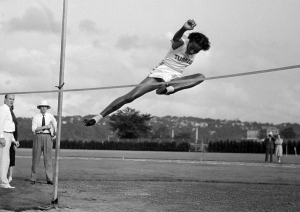Khadija Gbla was about 10 years old when her mother told her they were going on a vacation. Caught up in the Sierra Leonean civil war, Gbla and her family sought refuge in The Gambia.
When the day to embark on the vacation dawned, she and her mother rode for a very long time in a car and ended up in a village outside a hut where an old lady waited for them.
Gbla recalled the old lady dressed in tribal wear, there to greet them, but she was scary looking. “She went back into the hut and came out with a rusty, dirty, dull knife in her hand,” she told W24.
“She then walked away into a second hut and my mum dragged me into it behind her. As soon as I stepped inside, she pulled my clothes off and held me down on the floor, naked. She was so much stronger than me, so I didn’t stand a chance.”
With the rusty knife, the old lady approached Gbla who thought she was going to be killed but the woman had other ideas. She slid down Gbla’s body to her womanhood and then grabbed hold of her flesh down there (her clitoris and labia majora) and with the rusty knife, she started cutting away.
The 10-year-old who’s now an award-winning human rights activist, entrepreneur, inspirational speaker, facilitator, philanthropist and mentor screamed and cried out in agony, begging her mother to let go of her, to make the ordeal stop, “but this woman just kept on sawing.”
Not long after the brutal experience, Australia took them in as refugees. FGM survivor Gbla had been an outspoken advocate working to eradicate the brutal practice of mutilating little girls since was only 13 years old.
She said she made it her mission to ensure it doesn’t happen to any other girl. “I didn’t have sex until I was married at 22. I had no desire for sex – I didn’t get aroused. When I did have sex, it was very painful. Every time feels just as painful as the first,” she recalled.
Gbla also noted that she is vulnerable down there, and get constant urinary tract infections. Worst of all, her periods are excruciating and her mum used to have to call the ambulance to take her to the hospital because she’d be screaming in agony.
She is now the executive director of No FGM Australia, a not-for-profit organization that aims to protect Australian girls from FGM and to support and empower survivors of FGM.
Gbla told Theahafoundation that “Once I had realized what happened to me and the impact it has had on my life, I was imagining that so many other girls were experiencing the same abuse I survived and dealing with these consequences for the rest of their life. I was angry.
“I was angry with my mom for allowing this act to be done to me, for paying someone to mutilate me. Angry at the injustice of it, angry at how it was allowed to happen, and the price that girls like me have to pay for the rest of our lives.”
According to the most accurate data collected by No FGM Australia, there are 83,000 FGM survivors in Australia.
Told she may never be able to have children, Gbla had a beautiful baby boy (delivered via C-section) and now she’s on a mission to empower young women to be able to stand up for themselves and say, “This is my body and no one gets to mutilate or alter it for any reason.”










